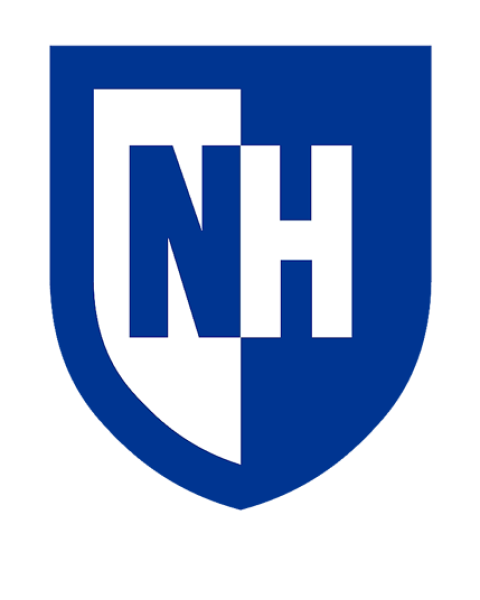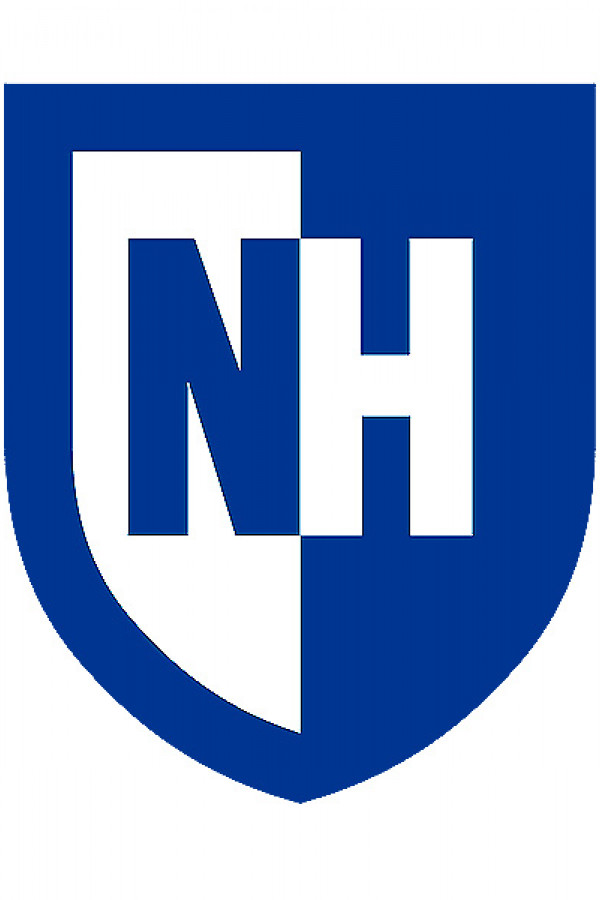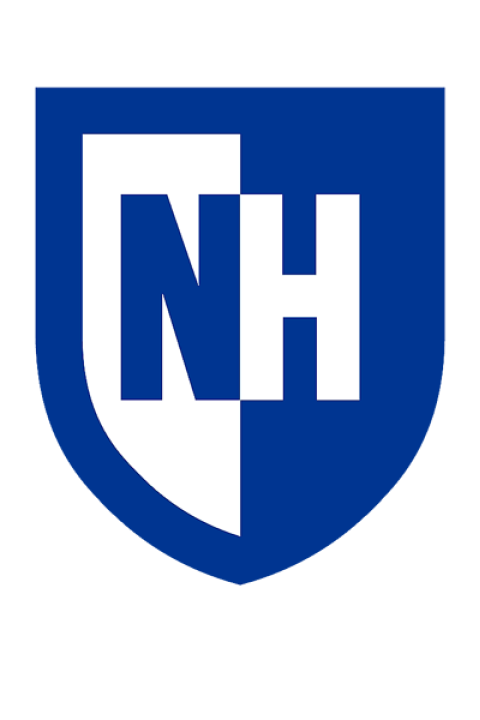Manchester Students: We are not admitting students to the English Teaching Major at this time. You may apply for the same degree offered at our Durham campus here.
What is English teaching?
If you love to read and write, and dream of a career where you can inspire others to share that love — then teaching English may be the right path for you. The English teaching program builds your foundation in literature and grammar, human development and learning, the education system and teaching practices. Through hands-on learning in real classroom settings, you’ll gain the knowledge and skills that will prepare you to pursue a career as a middle- or high school-level English educator.
Why study English teaching at UNH Manchester?
Considered one of the region’s best, UNH Manchester’s English teaching program prepares students with the tools, guidance and real-world experience for a rewarding career in English education. Our faculty are not only master teachers, but thoughtful mentors to those who see themselves as educators. They offer a diverse spectrum of expertise — from Shakespeare to Digital Creative Writing, from Irish Literature to deep knowledge of standards-based literacy education. With planning, the five-year accelerated master’s option allows you to fulfill some requirements for your Master of Arts in Teaching as an undergraduate. In addition to taking graduate courses on the Durham and Manchester campuses, you’ll spend the fifth year in the program interning at an area school, preparing you to become state-certified to teach English language arts.
Potential careers
- Adult education teacher
- ESL program coordinator
- Elementary, middle or high school English teacher
- Principal
- Writer
Master of Arts in Teaching
The English Teaching major prepares prospective teachers of middle- and high-school English (grades 5-12), however state certification requires an additional year of coursework and an internship at the graduate level. Students who wish to be state certified must apply for admission to graduate study within the Education Department.
For more information about graduate study, please contact Candice Morey, educational program coordinator, at candice.morey@unh.edu or (603) 641-4344.
Curriculum & Requirements
Beginning in the 2025-2026 academic year, the English Teaching major will no longer be accepting new students. Current English Teaching students will continue to have access to the same high-quality education and resources until they graduate.
Inspire others to share your love of reading and writing with our English Teaching program. Considered one of the region’s best, our program gives you the tools, guidance and real-world experience for a rewarding career in English education.
Our faculty are not only master teachers but also thoughtful mentors to those seeking to become educators. They offer a diverse spectrum of expertise—from Shakespeare to 21st-century literature and media, from philosophies of teaching to deep knowledge of standards-based literacy instruction.
The Accelerated Master’s program in Durham allows you to work on requirements for your Master of Arts in Teaching degree while still in the bachelor’s program. Upon acceptance into the master's program, you can apply 12 undergraduate credits to the advanced degree. Once you’ve finished your B.A., you’ll complete graduate-level coursework in the master’s program and undertake a year-long teaching internship where you’ll collaborate with a teacher to apply your knowledge in a classroom.
Students who complete the master’s program are uniquely well prepared to become leaders in the profession over the long term. State certification is transferable to most other states, and, after five years, 88.7% of UNH master’s program graduates report that they are teaching or employed in an education-related job. Join the English Teaching major and turn your passion for English into a fulfilling career serving your community!
For more information, contact the UNH Manchester Office of Admissions at (603) 641-4150.
This degree plan is a sample and does not reflect the impact of transfer credit or current course offerings. UNH Manchester undergraduate students will develop individual academic plans with their professional advisor during the first year at UNH.
Sample Course Sequence
| First Year | ||
|---|---|---|
| Fall | Credits | |
| UMST 401 or UMST 402 | First Year Seminar or Transfer Seminar | 1-2 |
| ENGL 401 | First-Year Writing | 4 |
| Elective | 4 | |
| Discovery Course | 4 | |
| Discovery Course | 4 | |
| Credits | 17-18 | |
| Spring | ||
| Quantitative Reasoning | 4 | |
| ENGL 419 | How to Read Anything | 4 |
| Discovery Course | 4 | |
| Elective | 4 | |
| Credits | 16 | |
| Second Year | ||
| Fall | ||
| Foreign Language | 4 | |
| EDUC 500 | Exploring Teaching | 4 |
| ENGL 516W | American Literature II Money, Migration, and Modernity: Huck Finn to Beloved | 4 |
| Discovery Course | 4 | |
| Credits | 16 | |
| Spring | ||
| ENGL 514W | British Literature III: Revolts, Renewals, Migrations | 4 |
| Foreign Language | 4 | |
| 500/600/700-level English course | 4 | |
| Discovery Course | 4 | |
| Credits | 16 | |
| Third Year | ||
| Fall | ||
| ENGL 710 | Teaching Writing | 4 |
| ENGL 657 | Shakespeare | 4 |
| Discovery Course | 4 | |
| Elective | 4 | |
| Credits | 16 | |
| Spring | ||
| 600/700-level Literature course | 4 | |
| Discovery Course | 4 | |
| Elective | 4 | |
| Elective | 4 | |
| Credits | 16 | |
| Fourth Year | ||
| Fall | ||
| ENGL 791 | English Grammar | 4 |
| 600/700-level Literature course | 4 | |
| Discovery Course | 4 | |
| Elective | 4 | |
| Credits | 16 | |
| Spring | ||
| ENGL 792 | Teaching Literature and Literacy | 4 |
| Elective | 4 | |
| Elective | 4 | |
| Elective | 4 | |
| Credits | 16 | |
| Total Credits | 129-130 | |
Degree Requirements
All Major, Option and Elective Requirements as indicated.
*Major GPA requirements as indicated.
Major Requirements
All English Teaching majors must complete 10 courses (40 credits). Six of 10 courses must be at the 600-level or above. The English Teaching major prepares prospective teachers of middle- and high-school English (grades 5-12). This degree does not provide state certification. Students who wish to be certified must apply for admission to graduate study within the Education Department. Certification requires an additional year of course work and internship at the graduate level. The graduate coursework and internship can typically be completed in the 12 months following completion of the B.A. in English Teaching.
- Prospective English Teaching majors should enroll in EDUC 500 Exploring Teaching in their sophomore year, or, if a transfer student, as soon as possible thereafter.
- ENGL 419 must be completed with a minimum grade of C. All other major courses must be completed with a minimum grade of C-.
- English Teaching majors must have a 2.5 GPA in the following program requirements:
| Code | Title | Credits |
|---|---|---|
| Required Courses | ||
| ENGL 419 | How to Read Anything | 4 |
| ENGL 514W | British Literature III: Revolts, Renewals, Migrations 1 | 4 |
| ENGL 516W | American Literature II Money, Migration, and Modernity: Huck Finn to Beloved | 4 |
| ENGL 657 | Shakespeare | 4 |
| ENGL 710 | Teaching Writing | 4 |
| ENGL 791 | English Grammar | 4 |
| ENGL 792 | Teaching Literature and Literacy | 4 |
| Select one additional 500/600/700-level English course | 4 | |
| Select two additional 600/700-level literature courses | 8 | |
| Total Credits | 40 | |
Diversity Requirement
Students must take one course that focuses on diversity in race, ethnicity, religion, gender or class, and theories concerning them. This course counts toward the ten courses described above. Consult with your advisor about courses that will fulfill this requirement.
Capstone Requirement
Students must take one capstone course during their senior year from any approved ENGL 700-level course in the major. Students must have earned 90 credits before taking the course. Consult with the program coordinator about courses that will fulfill this requirement.
- 1
Cannot be repeated under different course title.
Program Learning Outcomes
Students will have the opportunity to compare philosophies of English teaching and learning, and to develop their own approaches to writing and literacy instruction in unit plans and lesson plans. In class, we will discuss theoretical and pedagogical ideas centered on student writing, engage in reading and writing exercises, produce and practice instructional activities and assessments, evaluate approaches to teaching writing, and review state-level standards and tests. Overall, the aim of the course is recognition of literacy skills (including reading, writing, listening, speaking, and viewing) and consideration of how they can be used for learning goals including comprehension, analysis, description, and evaluation.
Students will:
- Design activities, lessons, and units to meet established standards and objectives in writing and language use.
- Adapt materials for a variety of students’ needs, including exceptional learners.
- Identify teaching resources among mentors, professional literature, conferences, organizations (e.g., National Council of Teachers of English [NCTE]), technology, and websites.
- Reflect and write on the theoretical bases for instructional decisions, evaluating professional literature and using appropriate academic conventions.
- Deliver engaging, on-point writing and language instruction appropriate to audience and content; practice a variety of presentation and discussion strategies.
Explore Program Details
-
Associate ProfessorChair, Department of Business and Communication ArtsEmail: Susanne.Paterson@unh.eduPhone: (603) 641-4115
Our teaching preparation program is one of the region’s most highly regarded, so the skills and experience you’ll gain while pursuing your degree will open many doors for your future.
The Bureau of Labor Statistics recognizes the important role teaching plays in our economic future. Teaching positions are projected to grow through the beginning of the next decade — especially in middle school. And the need for educators with master’s degrees is even higher, with an estimated 6 percent growth rate through 2024.
An English teaching degree doesn’t restrict you to the classroom — the interpersonal and communication skills you’ll gain are valuable to employers in a range of industries.
| Job Title | Job Growth | Average Salary |
| Adult Literacy or High School Equivalency Diploma Teacher | 7% | $50,280 |
| High School Teacher | 6% | $57,200 |
| Instructional Coordinator | 7% | $62,270 |
| Middle School Teacher | 6% | $55,860 |
| School Guidance or Career Counselor | 8% | $53,660 |
| Social or Community Service Manager | 10% | $63,530 |
| Writer or Author | 2% | $60,250 |
Jumpstart your career after graduation with UNH's accelerated master's program, allowing you to earn you bachelor's in English Teaching at UNH Manchester and a Master of Arts in Teaching (M.A.T.) in as few as five years. Upon graduating with the M.A.T., students will be prepared to teach English language arts, and 94 percent of students go on to teach after completing their graduate degree. Over 90 percent of graduates from UNH's teaching program were rated by principals as "very good or excellent" in their knowledge of subject area.
Master of Arts in Teaching requirements* include:
- Up to twelve 700-level course credits will transfer into the graduate program
- The first year is spent completing a full-time classroom internship (12 credits)
*32 credits are required to complete a master's degree.
To learn more, visit the accelerated master's webpage or contact Candice Morey.
Explore the core theories of teaching in our education minor, allowing you to build the skills to inspire others to share your love of learning.
In our TESOL minor, you'll acquire the academic skills necessary to teach English to Speakers of Other Languages (ESOL) outside the K-12 school setting, to lay a foundation for graduate study in education and ESOL teaching certification, and to work with international communities, whether at home or abroad.






